The Most Underrated Synths: 5 That Deserve A Second Look
Underrated gems from IK Multimedia, Waldorf, Roland, Behringer and Korg.
For every synthesizer that makes an immediate splash on release, there are a handful that don’t quite make enough waves. Here are five of our picks for the most underrated synths you can buy today…
Most Underrated Synths
The instrument release cycle can be a punishing thing. New synthesizers get leaked, then hyped, and then blitzed by the media and synth community when they come out. It’s a flurry of activity that blows in like a storm and then can, just as quickly, blow away. As musicians and fans of synthesizers, we want to highlight some that we think are worth another look.
These are our top 5 of the most underrated synths
IK Multimedia UNO Synth Pro X
When IK Multimedia released the Pro X version of its popular synthesizer, the UNO Synth Pro, in 2023, we were pretty pleased with the design choices. The unusual look of the original UNO Synth Pro models kept it from really taking off. Losing the red casing and gaining more knobs, it’s number one on our list of the most underrated synths.
Under the hood, the UNO Synth Pro X packs a real punch. The analogue Pro X features three oscillators with wave morphing, PWM, sync and frequency and ring modulation. Yes, it is a three-oscillator synth at this price.
There’s more though. It also has two state-variable filters with 24 modes, which can be run in series or parallel. Then there are the two envelopes, two LFOs, a 16-slot mod matrix, step sequencer, arpeggiator, comprehensive effects section, and more.
As you can see, there’s a lot of synthesis power packed into the UNO Synth Pro X. And don’t worry, it has the sound to match.

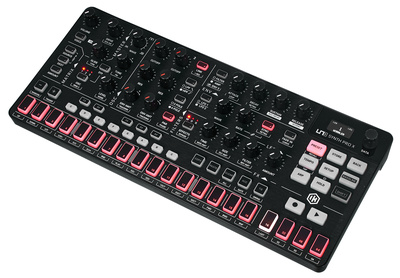
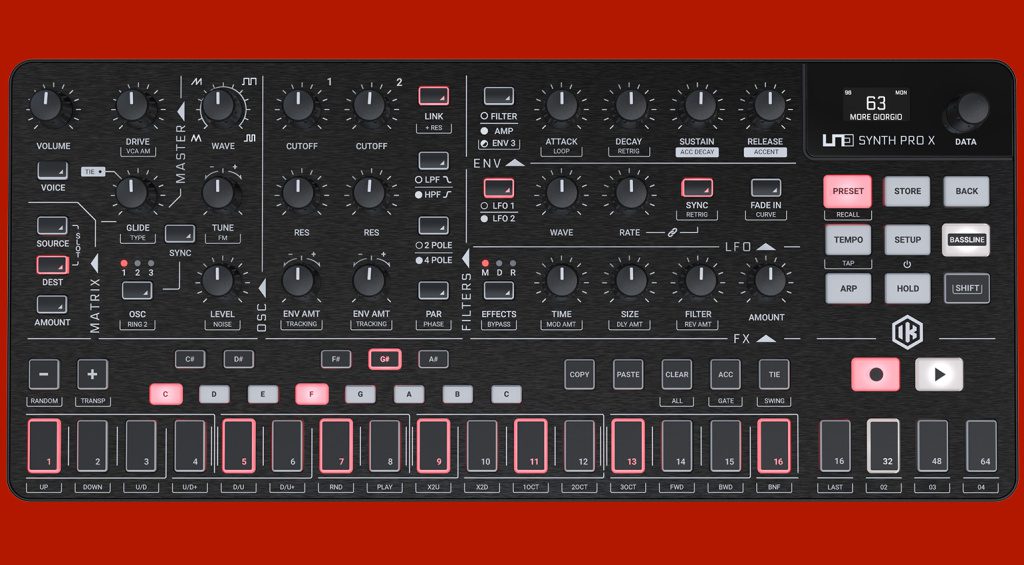
Waldorf Blofeld
Waldorf is known primarily for its high-end machines like the Iridium and Quantum. However, not every release is the synthesizer equivalent to a supercar. That’s why it is on our list of the most underrated synths. The company makes some affordable instruments too, like the Blofeld, but these sadly seem to get overlooked.
Sporting gorgeous industrial design by Axel Hartmann, the Blofeld synths (there are desktop and keyboard versions available in both black and white) are digital synths featuring virtual analogue from the Q line plus a classic Waldorf wavetable engine. They have three oscillators and two independent multimode filters per voice. Modulation isn’t lacking either, with three LFOs and four envelopes. And, given that it’s a digital synth, it can support up to 25 voices of polyphony and is 16-part multitimbral.
Unfortunately, they’re not one-knob per function, and this may be part of why the Blofeld has never achieved classic status like its other Waldorf brethren, and why it’s one of the most underrated synths. However, if you’re willing to overlook this, there’s a lot of sound here for not a lot of money.

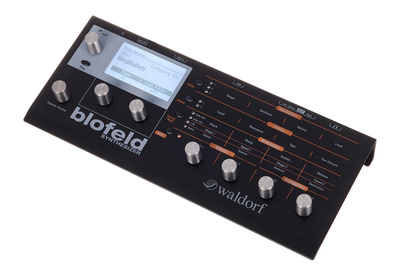

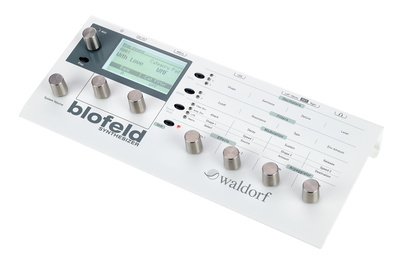

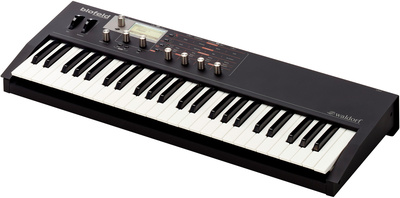

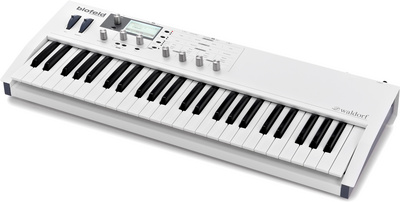
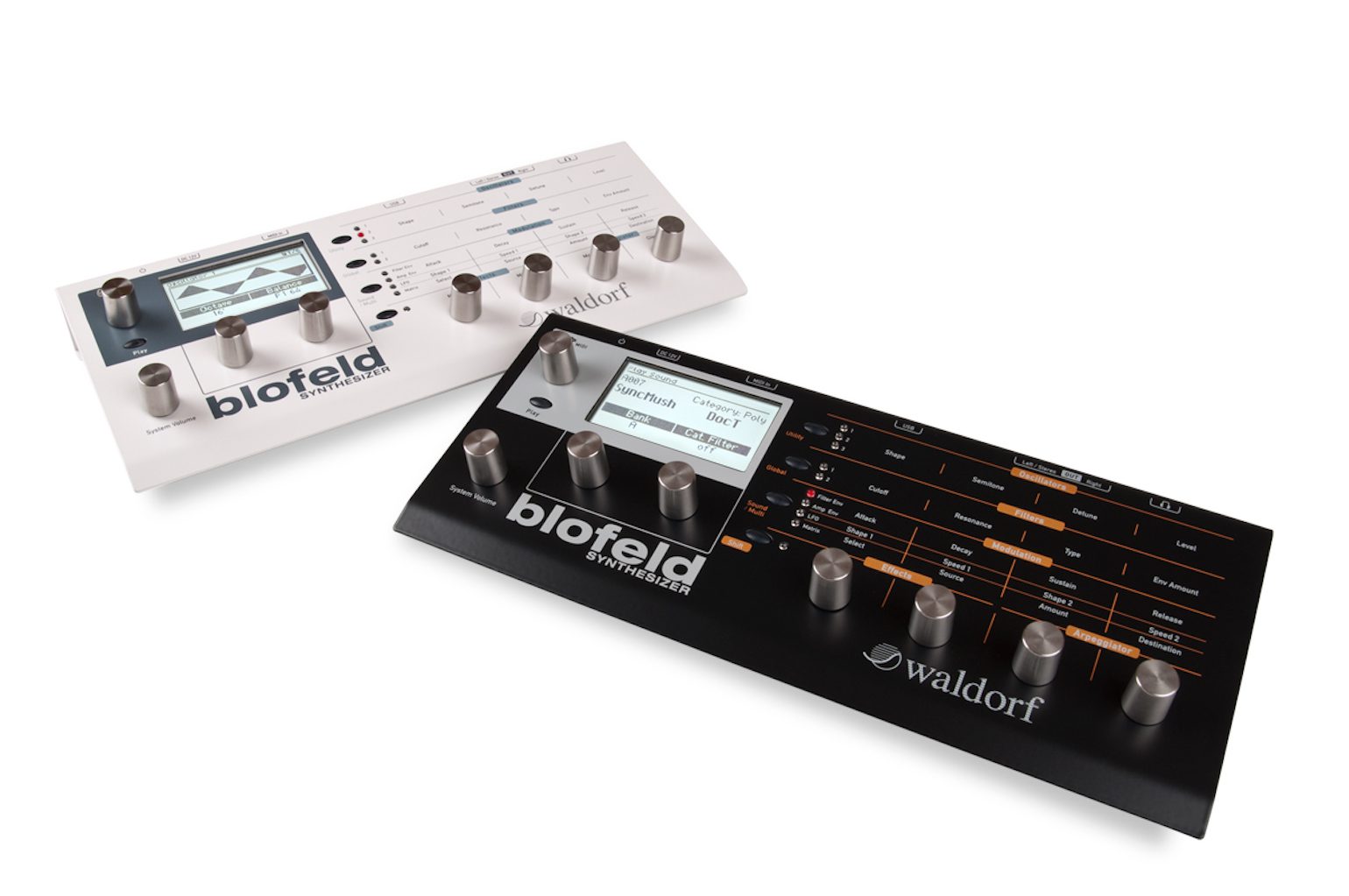
Korg opsix mk2
Not long ago, Korg released three digital synths inspired by instruments from its own past. They’ve had varying degrees of success, but one – already the successor of the opsix – in particular we feel is ripe for a reappraisal: the opsix mk2.
The opsix mk2 is an FM synth. Like Yamaha’s DX7 before it, it uses six operators (hence the name) as a basis for sound synthesis. Unlike the DX7, though, you don’t need a degree in theoretical maths to program it. Synthesis options are just as deep – actually, much deeper – than the DX7 but presented in a way that’s more familiar to those who’ve cut their teeth on subtractive synthesis.
There’s plenty of fun to be had. It also has a digital multimode filter with a number of models of famous filter circuits, like Korg’s own MS-20. It’s also got a sequencer, motion sequencing, an arpeggiator, and more than 30 effects usable in three slots.
If you’ve been wanting to move away from analogue and expand your synthesizer toolkit, Korg’s opsix mk2 is the perfect gateway to digital. And it is definitely one of the most underrated synths.

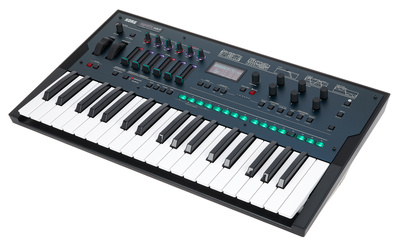

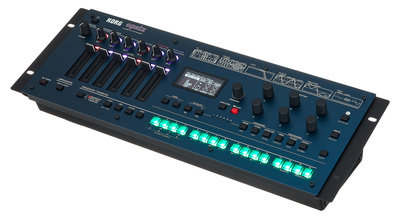

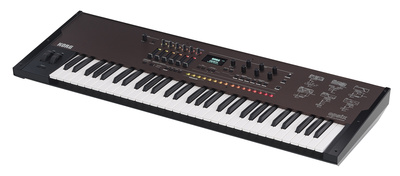
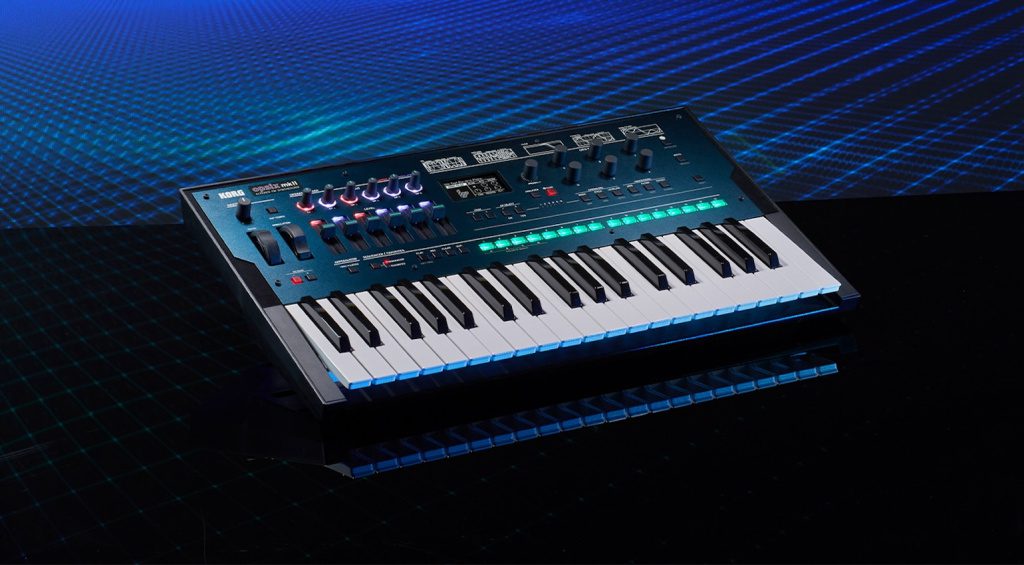
Roland JD-XA – one of the most underrated synths
It’s a tale as old as time, or at least as old as the late 1980s. Roland releases a new synth and everyone complains that it’s not analogue. But in 2015 the company did release an analogue synth and in typical internet fashion, everyone roundly ignored it.
The JD-XA is a hybrid instrument that combines a fully analogue four-voice polysynth with a 64-voice digital part based on the SuperNATURAL engine from the Integra-7. On the analogue side, there are two oscillators, a multimode filter, four envelopes and three LFOs, while the digital half gives you everything you’d expect from a modern Roland digital poly.
It’s not cheap, honestly, but then again you wouldn’t expect something of this calibre to be a bargain. This goes double when you consider the 49-key aftertouch-equipped keyboard, built-in vocoder, 16-track pattern sequencer, and full MFX effects section.
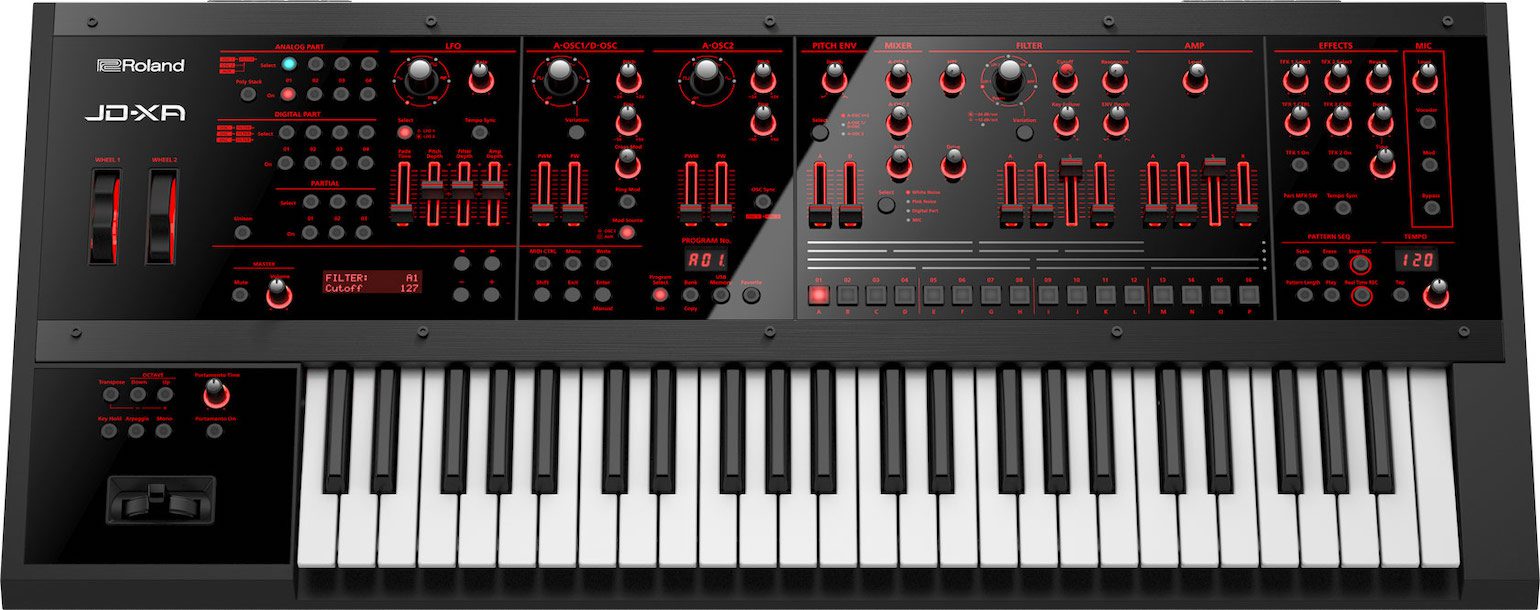
Behringer K-2
With so many synthesizer releases in such a short time, not every Behringer instrument is going to be a runaway success. Even when you just restrict yourself to their Eurorack-ready format, there’s still the Neutron, Model D, Cat, Pro-1, and Wasp to contend with. Did I forget the K-2? I think you may have too – and that’s why it’s on our list of the most underrated synths.
The K-2 is Behringer’s version of the MS-20, Korg’s famous dual oscillator monosynth with the screamy filters. That’s not a typo, by the way. The lowpass and highpass filters are definitely screamy and not creamy. This is part of what makes the synth so famous. This, and the semi-modular construction, which allows you to use the patchbay to expand its synthesis capabilities.
As with the other synths in the same form factor, you can use the K-2 as a desktop unit or pull it out of the housing and slap it into a Eurorack case. If you’re looking for something a little more punk than your usual Moog and ARP monosynth sounds, give this one a try. (Want moar Behringer? Here you’ll find our huge Behringer article, “Meet the Clones.”)

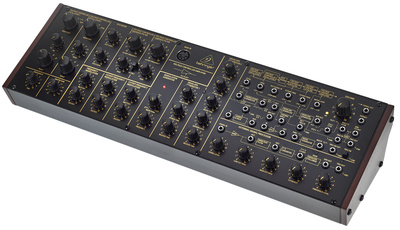
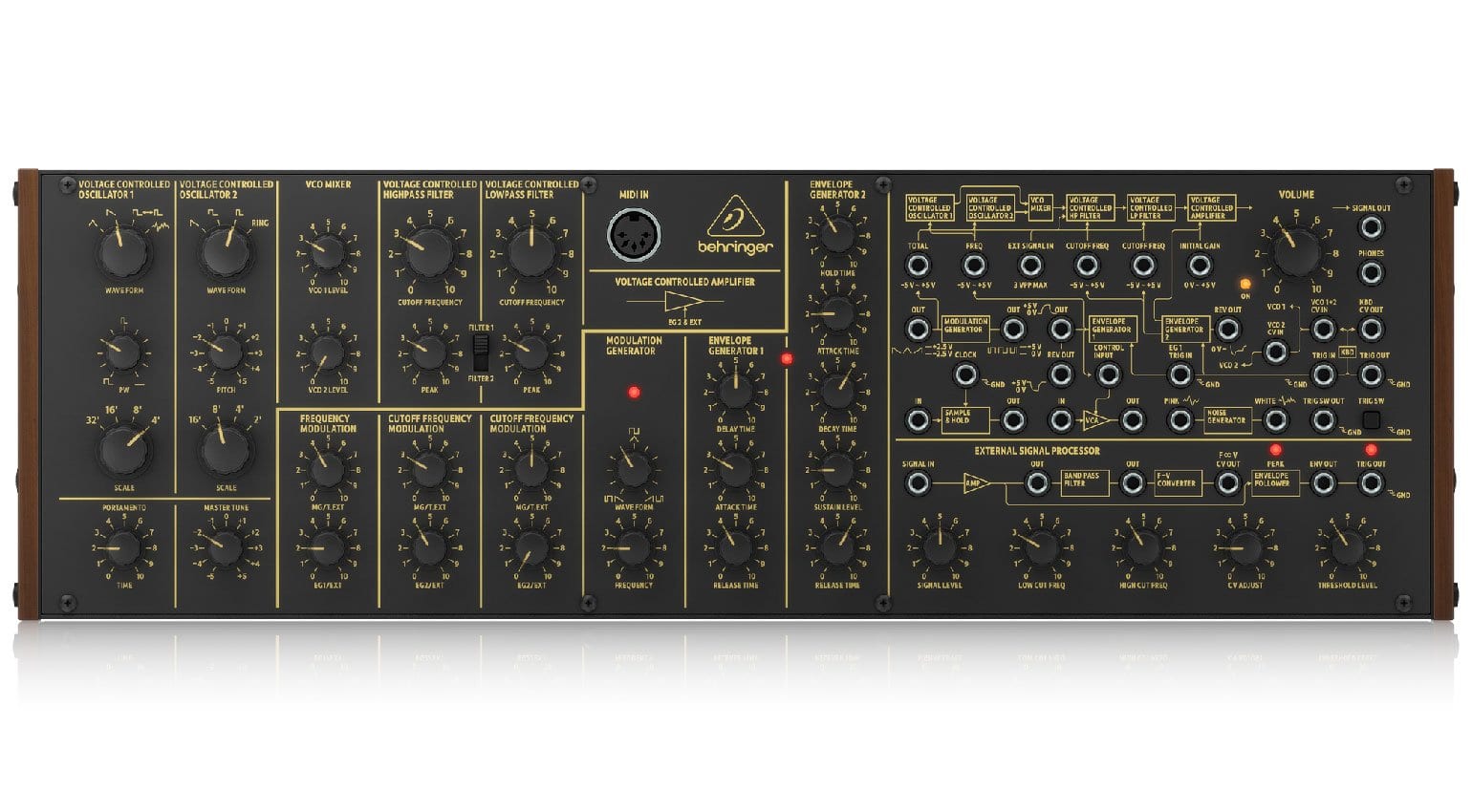
More about synths
- Synth news and reviews
More videos about the most underrated synths
5 responses to “The Most Underrated Synths: 5 That Deserve A Second Look”

You are currently viewing a placeholder content from Facebook. To access the actual content, click the button below. Please note that doing so will share data with third-party providers.
More InformationYou are currently viewing a placeholder content from Instagram. To access the actual content, click the button below. Please note that doing so will share data with third-party providers.
More InformationYou are currently viewing a placeholder content from X. To access the actual content, click the button below. Please note that doing so will share data with third-party providers.
More Information 4,0 / 5,0 |
4,0 / 5,0 | 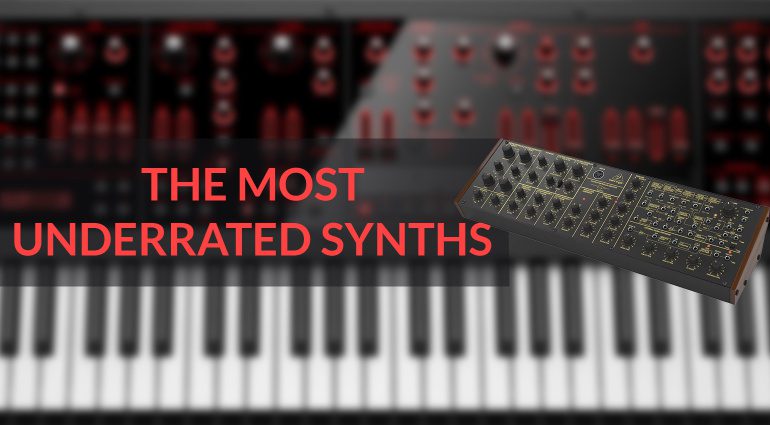


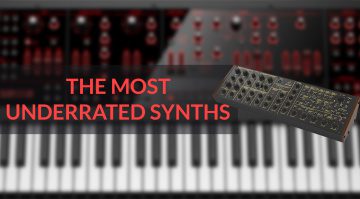

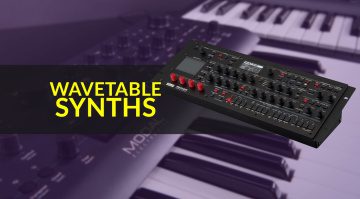
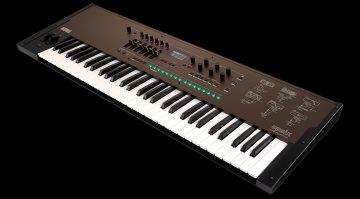
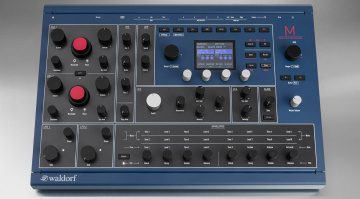
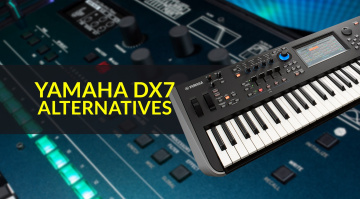
I bought the original white Blofeld desktop when they first came out, maybe 15 years ago? I thought it was okay at the time but a year later, I started to get into VSTs and thought – wait a sec: My VST synths have way more polyphony, sound better, are easier to use, and don’t suffer with dodgy rotary encoder issues like my Blofeld did exactly 3 seconds after the 12 month warranty expired!
the difference is after 15 years you had to upgrade by spending a lot more money to stay in the vst, while i still use the synth the problem of the encoders have been solved and i haven’t spent any money on upgrades
Ah, the age old VST vs Hardware debate. I’m actually a fan of both ‘worlds’ and indeed, I’m all too aware that some of my favourite VST’s might one day become lost forever if the ‘designer’ no longer supports newer O/S’s. On the other hand of course, broken synths etc can usually be repaired or replaced with another one, if someone really needs to keep a particular model in their rig. I guess my opinion of the Blofeld was tainted as mine suffered encoder issues literally as mentioned, very soon after the warranty expired. The price to pay when you’re an early adopter! I think I let it go for £100, and bought Sylenth instead 😉
Given there wasn’t a limit to the number that was set in the title, I am surprised at synths that offer a lot of value for the money and seem not to be listed…. The Microfreak or newer Minifreak isn’t here? Nor is the East Beast or West Pest? Or the Typhon? I mean all of these pack in a ton of stuff.
K2 is relevant! Love it. No Vst can beat it.